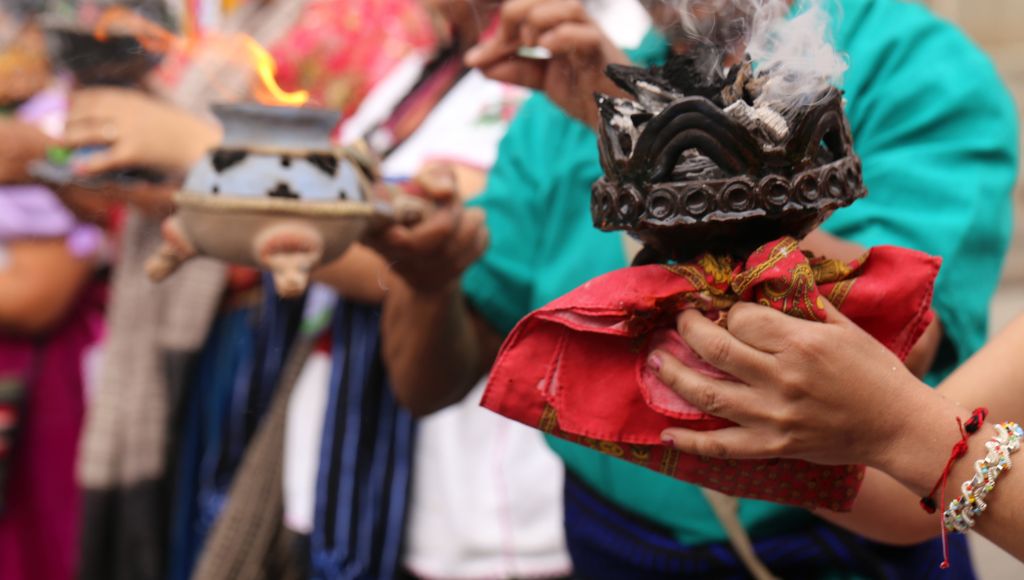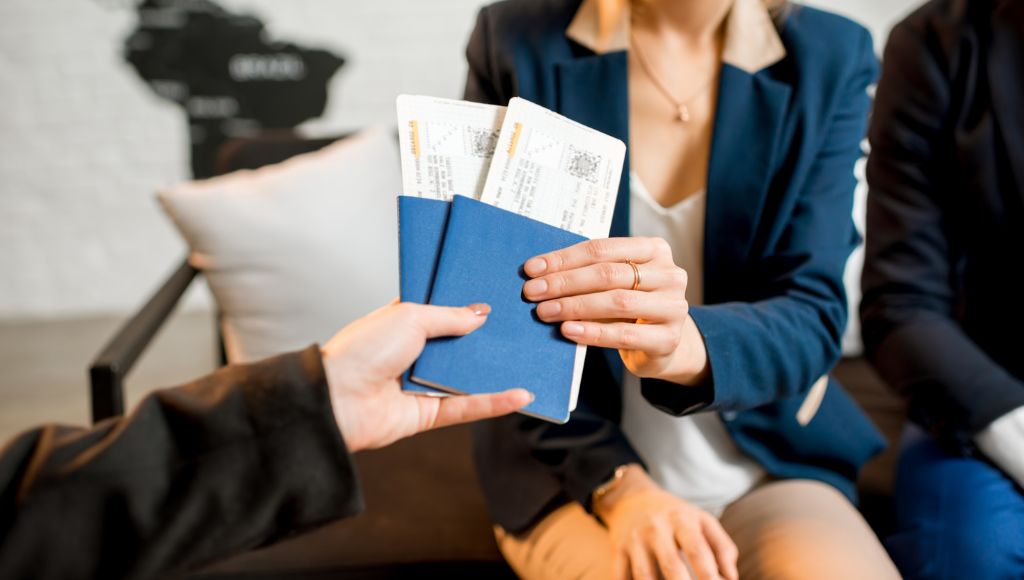In the past few years, curious travelers have become increasingly interested in using their vacations to uncover their ancestry and genealogical makeup. Ancestry travel provides the answers people are seeking as they explore their roots and engage with new cultures.
Genealogy trips come in countless forms, varying from a visit to a nearby village to a journey across the world. There is no end to what people can discover about both themselves and their ancestors when participating in heritage travel. Whether you are seeking a deeper understanding of your cultural, historical, or religious heritage, a serious genealogy travel trip is the place to start.
Coming your way in this post - click to expand ->
What is ancestry travel?
Ancestry travel is focused on connecting individuals with their cultural history. Through a variety of methods, such as consulting historical records or employing the assistance of a professional genealogist, people can use heritage travel to track the movements of their ancestors across the world and uncover connections to cultures, languages, and religions they never previously knew about.
Simply put, an ancestry tour focuses on exploring a destination connected to an individual or tour group’s family history and grants them access to the language, traditions, and cuisine that would have colored the lives of their family members.

12 steps on how to plan your own ancestry travel
Consider taking a DNA test
The quickest and most effective way to uncover your genealogy is to take a DNA test. There are numerous at-home DNA tests available to purchase online, with each boasting its own benefits, whether that be the quickest result times or access to the most detailed genealogy databases.
Through the simple act of providing a saliva sample, a professional genealogist can test your DNA against a database and discover matches from across the world, tracing your ancestry from Eastern Europe to Salt Lake City.
The results from the test will provide you with several different destination options for your heritage travel and allow you to begin making preparations.
Do ancestry research
Upon receiving your DNA results, you can begin conducting research into your ancestry. Researching the culture and history of the various countries you have ancestral ties to will help you select the destination you have the most interest in.
The internet is the best place to start. Before you delve into national archives and census records, you can develop your knowledge of a particular country by consulting different travel websites and documentaries. Gathering this information can help your own research and will provide you with a base of knowledge about your ancestors’ homeland and the way it has developed throughout time.
Do heritage research
While ancestry research can introduce you to the cultural traditions tied to a particular destination, heritage research grants you the opportunity to uncover your personal connection to other countries by tracing your specific family history.
Constructing family trees and talking to your living family members is the best place to start gathering information about your heritage. These family trees and records will make it easier to map the movements of your distant relatives and develop your understanding of how your ancestors lived.
Every family’s history is unique and, as such, it will not be as widely recorded. This means that to discover the intimate details of your family’s life, such as their ancestral home and their death records, you will need to conduct as much independent research as you can. The best way to uncover these details is to contact the local library or county courthouse in your intended destination.

Establish your goals
When you have started planning your vacation, it is important to identify your priorities for your ancestry trip. Whether you have decided to visit sites of personal significance to your family or to immerse yourself in the local culture by participating in community events, will dictate the itinerary of your trip.
Both goals are of equal merit and can serve to strengthen your relationship with your ancestral homeland. Establishing what you want to gain from heritage travel early on means you can tailor the rest of your travel research to meet these goals.
Find the right specialist
While it is important to gather as much information as you can, as a private individual you may not have access to all the available research materials. Professionals in genealogy will have access to historical records as well as years of experience in the local area, thereby providing invaluable insight into your intended destinations.
Consulting with a local genealogist or historian at any point in your genealogical research journey can be hugely beneficial. Whether you have just started your research and are unsure of where to begin, or if you are part way through constructing your family tree and have seemingly reached a dead end, a specialist can offer advice and additional tools to guide you.
Trained in how to effectively sift through historical records, these experts can connect you to the intimate details of the local way of life in addition to the particulars of your family’s life. Doing some preparation prior to meeting with a specialist ensures you get the most out of the consultation.
Work with a professional travel agency if needed
The rising public interest in ancestry has seen a proliferation in travel agencies that offer ancestry tours with either personalized or general itineraries.
These heritage tours with the help of a travel company removes the stress of planning from your shoulders while also granting you access to local expertise. A tour guide from your chosen destination will have a personal connection to the history you seek to explore and, as such, heritage tours can allow you to experience life as a local.

Make a detailed itinerary or review past itineraries
An itinerary will give your whole heritage tour or trip structure and ensure that you achieve all of the goals you previously established. It can include anything from visiting historical monuments to meeting distant relatives.
If you are unsure of what to prioritize, looking at the itineraries offered by a local travel agent or other travelers who share your ancestry can be a helpful way to discover activities you had not previously considered as well as to eliminate ones that are not of interest to you. Reading reviews of local attractions and restaurants is another way to ensure you are getting the best possible experience on your genealogy trip.
While it can be tempting to plan out every detail of your visit, remember to leave room for spontaneity as well. Having a flexible plan gives you the opportunity to explore areas you may not have come across when planning.
Check for language and history skills
If your genealogy trip takes you to a different country, there may be a language barrier between you and the locals. As such, prior to your visit, it may be helpful to learn the basics of the language, such as how to order food or ask for directions.
While local guides often offer their tours in several languages, learning the basics of a language affords you some independence in addition to the opportunity to communicate with the locals.
During the planning stage of your trip, you will have developed your history skills by researching and compiling information about your own ancestors. However, it can still be useful to read up on the general history of the country you are traveling to. This information will place the lives of your family in the broader chronology of the area.
Make a research plan
A key element of your ancestry trip is a research plan. This will help to structure your trip and can include everything from the attractions and monuments you want to visit to the details of how you will travel between locations.
◾ How many places do you want to visit?
Deciding what you want to do on your heritage tour will determine several crucial details, such as the length of your trip and how much you need to budget for it. Primarily, you need to choose whether you want to visit one location or several.
After making this decision, consulting the websites for local attractions and reviews from previous visitors can help you pick the places best suited to you.
◾ How will you get around?
Transportation is central to any vacation. Knowing how you plan to get between various attractions and your accommodation beforehand is the easiest way to guarantee you have a relaxed and enjoyable trip.
As such, it can be useful to read up on the public transport available in the area or to look into hiring a car or bike for the duration of your vacation.
◾ Where will you stay?
Depending on your chosen location, there will be different accommodations available. If your heritage tour is taking you to a capital city, there will be countless hotels and hostels available.
More remote locations will have fewer options but they may come with their own perks. For example, if you are visiting a small village, there may be a locally owned Bed & Breakfast which will not only allow you to invest in the community but also interact with the locals.
◾ What are you hoping to get out of this trip?
Heritage tours can be a source of mixed emotions. It is a cathartic experience that can be both exciting and overwhelming as you uncover the details of your ancestors’ lives.
Therefore, prior to your trip, you need to assess what you want to achieve.
Whether you seek to strengthen your connection to a particular culture or to meet relatives, knowing beforehand is the best way to ensure you get the most out of your trip whilst also being emotionally prepared for it.

Consider what to pack and start packing
Packing is one of the least exciting elements of any vacation, but, just as much research as figuring out your transportation and accommodation, it is essential to an enjoyable trip. Before you embark on your travels, checking the current weather as well as the seasonal weather conditions of the area guarantees that you’ll be prepared for all possibilities.
As well as clothes, you need to consider other details, such as if you will need an adaptor to connect your electricals to the power outlets or a pocket dictionary to aid your communication with the locals. Applying for a travel credit card can also be beneficial.
Enjoy your ancestry travel
The most important thing is to enjoy your trip. After DNA testing, conducting research and creating itineraries, you can finally immerse yourself in the culture of your ancestors and connect with your genealogical background.
Celebrate memories and connections for a lifetime
Your heritage trip does not end when you return home. The connections you have made to your roots and previous generations of your family will last for the rest of your life and can continue to grow as you embark on more genealogy trips. By exploring new corners of the world and the lives of your relatives, you will have created memories that strengthen your relationship with the past.

FAQs
What are examples of genealogy tourism?
One example of genealogy travel is an American with an Irish ancestor visiting County Cork. This was one of the most common ports of departure for Irish immigrants in the 1900s.
Who qualifies as an ancestor?
‘Ancestor’ is a broad term that can be applied to a person’s blood relatives, from their great-grandfather and great grandmother, to relatives who lived generations prior to their birth.
What are the benefits of DNA testing?
DNA tests are the quickest way to uncover a person’s genealogical makeup. Furthermore, DNA testing can reveal aspects of an individual’s past that there was no prior documentation of.
Final thoughts on how to plan your own ancestry travel
Planning your own heritage vacation does not have to be a stressful procedure. By following this step-by-step guide, you can easily plan a heritage trip that you will cherish for the rest of your life. Whether you choose to conduct research independently by taking a DNA test and creating a family tree or to employ the assistance of local genealogists, a renewed sense of self and connection to your past is within reach.
As more and more descendants choose to research their genealogy and uncover their heritage, additional resources are being discovered. There has never been a better time to do a genealogy trip and embark on a journey through time than now. Take a DNA test and begin your journey of self-discovery and bring your past into the present with an ancestry tour.
